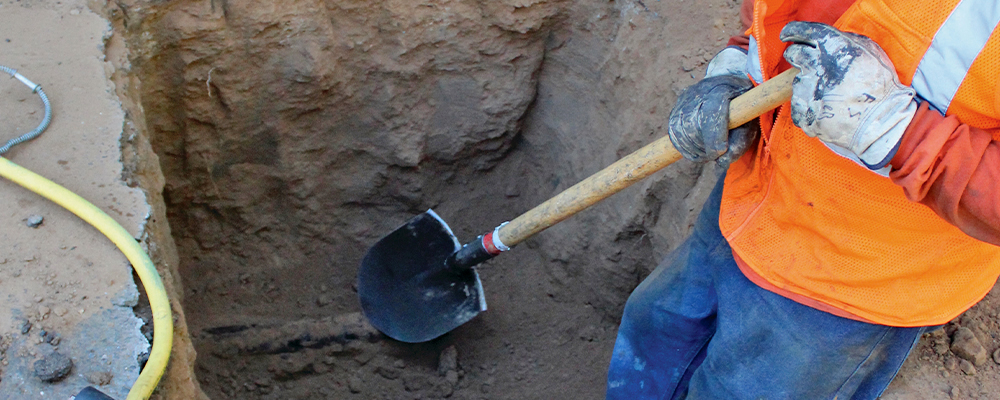|
|
Having trouble viewing this email? Click here to view in a browser.
|
|

|
|
|
|
|
|
|
|
Everyone’s resources have been affected by the COVID-19 pandemic. You can help prevent locate delays by pre-marking your proposed dig area in white and notifying 811 of your planned excavation with as much lead time as possible: up to 10 business days in Oregon and Washington. To learn more about NW Natural’s response to COVID-19, click here.
|
|
|
|
|
|
|
|
|
| Safe Hand-Digging Practices |
|
Review these tips with coworkers at your tailgate or tool box meetings before work begins to help avoid potential hazards when working near natural gas pipelines or other utility lines. |
|
|
|
|
|
|
|
|
Please help us improve our safety tips to meet your training needs. Take our two-minute survey.
|
|
|
|
|
|
|
|
|
|
You've called 811 and all buried utility lines on your job site have been located and marked. Now your digging work can begin, right? |
|
Not so fast. In Oregon and Washington, before you can use power-digging equipment to cross a marked utility line or excavate within 24 inches of its outside dimensions, you must first verify the line's exact location and depth by non-intrusive methods such as vacuum excavation or hand digging. |
|
| Hand-Digging Tips |
|
Protect underground utility lines from damage and protect yourself from injury with these hand-digging tips: |
|
• |
Use a rounded or blunt-edged shovel. Sharp tools, like pickaxes, mattocks, pry bars, or pointed spades, may gouge or puncture lines.
|
|
|
• |
Start your digging off to the side of the marked utility line. Use a gentle, prying motion to break away soil as you approach the utility laterally.
|
|
|
• |
Never pry against a utility line to remove soil, and never stab at the soil or stomp on the shovel with both feet.
|
|
|

|
|
| Prevent Muscle Strain and Injury |
|
Always wear proper personal protective equipment (PPE). Don't twist your torso to move the dirt; move your feet to turn your entire body. Alternate shoveling between your left and right sides. Take care to prevent muscle strain, and take breaks to prevent fatigue. |
|
| Report ALL Damage |
|
Even a slight gouge, scrape, or dent to a natural gas pipeline or other utility line could cause a catastrophic break or leak in the future. Protect all exposed utility lines and check them regularly for damage. Before you backfill, check them again. Report any damage to NW Natural so crews can inspect the line and make the necessary repairs. If gas is escaping, warn others, leave the area quickly, and call 911 as well. |
|
|
|
|
|
|
|
|
Free Online Excavation Safety Training
|
|
|
Now being offered — Excavation Safety 101
|
|
|
This online course will strengthen your understanding of common safety issues as well as educate you on laws and best practices for safe excavation. The course is designed to take a minimum of 60 minutes to complete, although there is no maximum time limit. Successful completion of Excavation Safety 101 with a 100% grade will earn you a certificate, proving that you've completed the course and giving you a way to earn continuing education credits.
|
|
|
The course is available to anyone. Simply create an account, enroll in the course, and complete the material at your own pace.
|
|
|
|
|
|
|
|
|
|
|
|
|
|
|
NW Natural
|
|
Emergencies
|
|
800-882-3377
|
|
|
|
|
|
|
|
|
|
|
|
|
Would You Like To Know More?
|
|
|
Additional digging guidelines, case studies, instructional videos, and training tools can all be found, at no charge to you, on NW Natural's e-SMARTworkers website.
|
|
|
|
|
Do You Like This Email Series?
|
|
|
Do you find the information helpful? We would like to know. Please visit our website for other Tips of the Trade. Sign up to tell us what you think, or let us know what topics you'd like to see in future emails.
|
|
|
|
|
|
|
|
|
|
|
|
|
|
